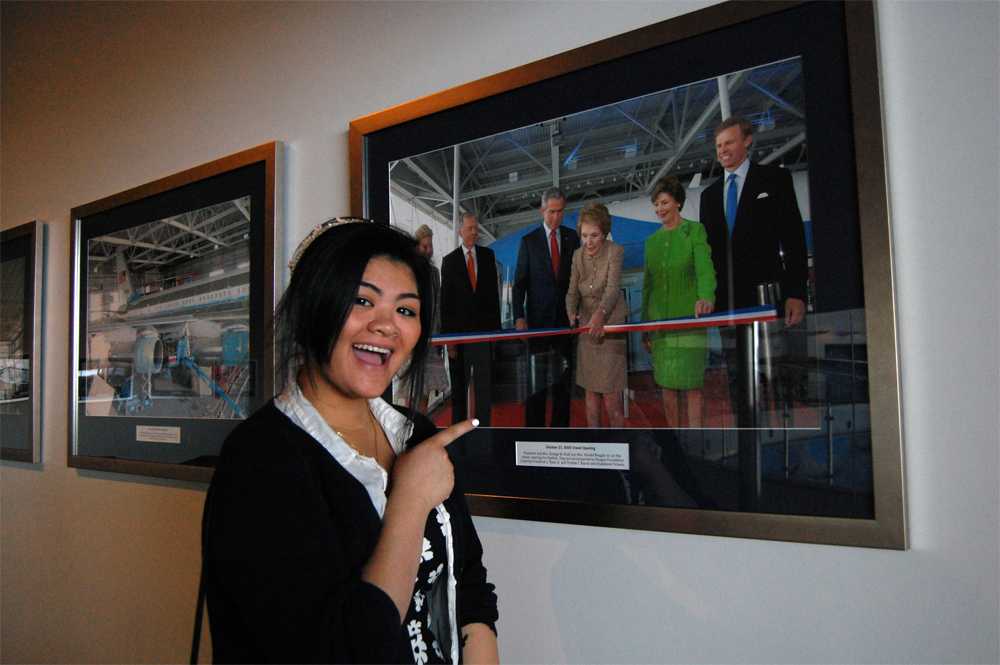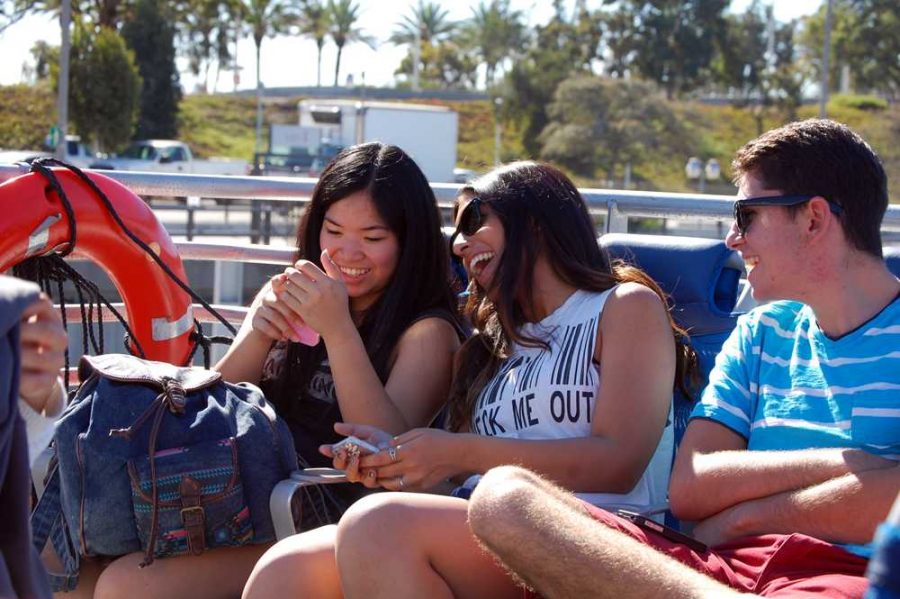Students enriched even with lack of field trips
April 9, 2014
There are exactly three words that describe the field trip experiences at Clark: rare, but memorable. When asked about their general view on the many field trips over the years, students often reflect on their Getty Museum field trip, or even their Nixon Library field trip, but they also always have a complaint. Clark teachers simply do not provide enough trips for the students.
However, the root of this problem is always not simple enough to explain. Why do some teachers take so many field trips, while others do not even utter a word about it? Why do some students not even have the opportunity to attend a single trip?
Some teachers, such as Nicholas Doom, are known for their famous annual field trips. Doom takes his AP Government and AP US History students to the USS Iowa battleship, Nixon Library and Ronald Reagan Library every year. “At presidential libraries students see first hand examples of accomplishments and failures,” Doom said. “For example, they get to see a chunk of the Berlin Wall, the Oval Office, gravesites and even where Nixon was born in.” Doom said that these experiences enrich the content of every class by providing real world experiences, but he also knows that they are difficult to plan and it is a challenge to coordinate and keep track of money.
Other teachers, however, have other troubles with planning field trips. Even though planning and organizing is a huge hassle, sometimes what is happening inside the classroom may be challenging. “I would like to take my students to the aquarium every year, but sometimes it doesn’t fit into the curriculum,” said biology teacher Virginia Benzer. “Sometimes they get so involved with what they are learning inside the classroom that we don’t have time.”
Every student from every grade has a different opinion on the amount of field trips they get to attend. Freshmen who have only attended at most one field trip think it is a disadvantage to not get the experience of going on many trips, while seniors after four years think that field trips provide education that cannot be taught in class. “I only went on one field trip this year, and it was to the Alex Theater for Shakespearience with Ms. Pettegrew’s class,” said freshman Rouzanna Asatryan. “And the fact that we don’t get to go on so many field trips is boring. We need more fun field trips, not just any field trips, because when it is not something we look forward to, it ends up being boring and we don’t have fun.”
Nevertheless, the attitudes towards Clark field trips are not always bitter. Senior Alyasa Fortaleza says that it’s frustrating that students at Clark feel they learn the most but see the least, but she also claims that students eventually get used to it. “My experiences over the four years were great — for example, snorkeling at Anacapa and visiting the presidential libraries provided lots of exciting places and experiences,” Fortaleza said. “Maybe the lack of field trips made the ones we did have taste a little sweeter.”
However, planning a single field trip is not as simple as it may seem.
“I don’t think students realize how many hoops we jump through to make a single trip happen, and that is why I take classes to field trips that I know are worth the time and effort,” said English and Creative Writing teacher Maral Guarino. “Part of what makes it so difficult is funding. We don’t want the students the pay entrance fees and we also don’t want field trips to become an excuse to leave class. They should be an enriching experience outside of classrooms.”
Even with all of the many trips provided throughout the years, students still want more, and teachers do not have enough resources needed to take every class on at least one field trip a year. However, the task of field trips are not simple enough and teachers know that such trips offer a type of education that is not written in textbooks. “I wish I could do more, but I can’t because of the time element and it is also difficult to juggle all the different field trips at the same time,” Doom said.
Career ready education happens when students apply what they learn inside to the outside world. When they attend field trips, students begin to see that what they have read about in books is actually tangible and holds historic value. “I think education should be outside of four walls and needs attention by the District,” Guarino said. “Students sit in a classroom all the time and listen to teachers and that’s not what education truly is.”

